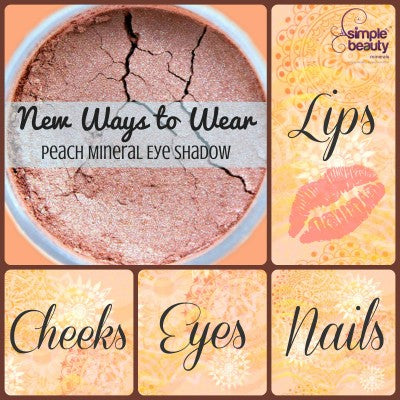You Need To Eat Waaaay Less Of This To Keep Your Smooth, Supple Skin


Believe it or not, there are things worse for your skin than the sun. (In fact, I would argue that some sun is crucial for your skin health.) Let's talk sugar. Sugar causes inflammation on a cellular level. The fancy-smancy scientific term for it is 'glycation'.
Glycation is a natural process. Even so, we don't want to over-do it, nor speed the process up. Eat too much sugar, and your blood sugar goes up. Yeah? So what? It's like this. Excess sugar in our blood stream can attach to proteins (collegen and elastin) in your skin to form harmful new molecules called 'advanced glycation end products' or, AGE's. And guess what? These are not the good guys. The more sugar in our diet, the more AGE's. We don't want these, I promise.
"The molecules in our facial skin are particularly vulnerable to sugar and it's damage. Go figure."
You see, collegen and elastin proten fibers are the most susceptible to glycation, and are also the same proteins that make our skin youthful. These are normally resilient fibers, and at best are soft and supple. However, as we age, and with excessive sugar, the glycation process turns these fibers stiff and inflexible which = ridged, saggy and wrinkled skin. Not Pretty! Could 50% of aging be due to glycation reaction? There are those that believe so. Huge bummer. So, at this point in time, research does seem to reveal that sugar ages your skin. A lifetime of over indulging in sugar causes dull, wrinkled skin. Excess sugar even makes you more vulnerable to sun damage. Sugar also exacerbates acne.
Glycation can't be stopped, but can be slowed.
1. Cut back on sugar and limit added sugar, as even vegetables, whole grains and fruits convert to glucose in a balanced diet (and there is no reason to give these healthy whole foods up).
2. Beware of hidden sugars in your diet. Soda is a huge sugar rush. On packaged foods, check the nutrition label for sugars, which are listed in grams under total carbohydrates, and then divide that number by four (each teaspoon of sugar is equal to 4 grams) to convert it to teaspoons. For example, if sugars are listed as 12 grams, you're getting three teaspoons of sugar per serving.
3. Aim for no more that 100 calories of sugar per day, or 6 teaspoons.
4. Avoid high fructose corn syrup (like the plague) - the top offender.
5. Get your anti-oxidants from inside and outside, especially your vitamin E and vitamin C.
6. Topical application of antioxidants such as green tea and vitamin C and E are a healthy boost. And remember, check out my mama's skin advise here...she knew to keep out of the sun for the most part, but the sugar thing, well, that news may have seen her abandoning the Pepperidge Farms Turnovers. (Oh man, those were good!) LaVerne's skin advise here.



